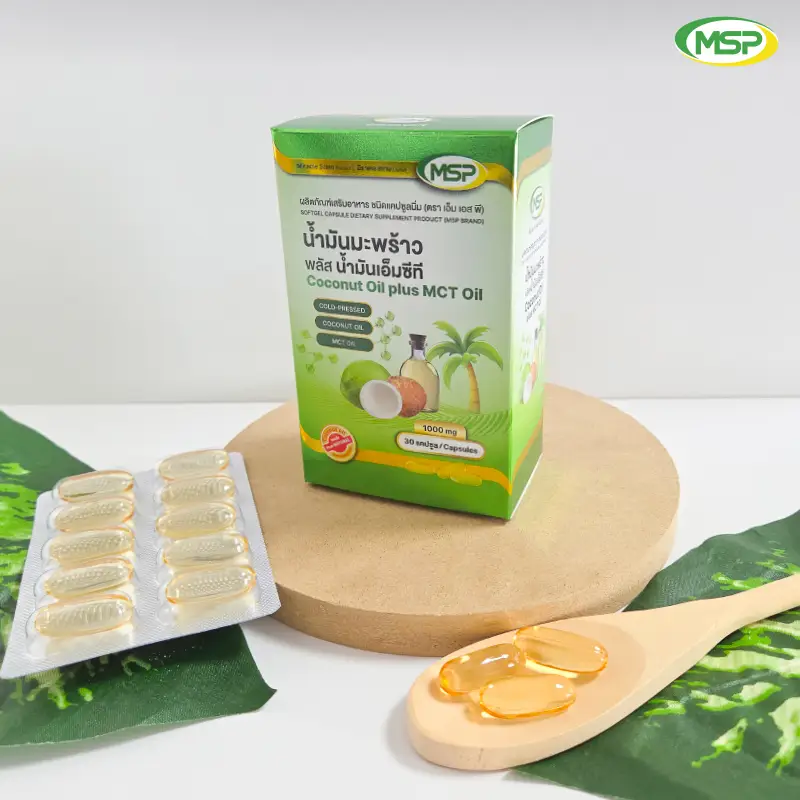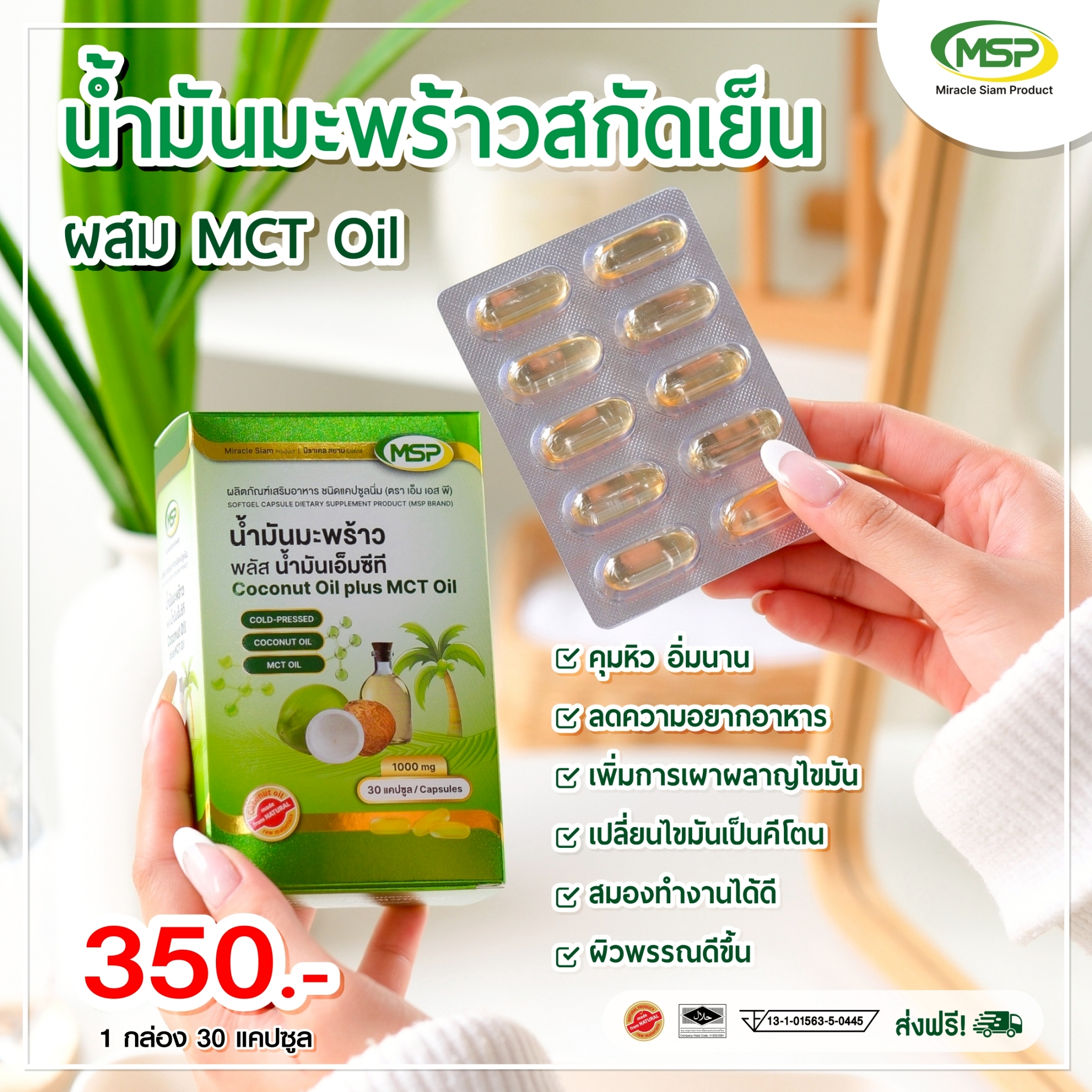EVIDENCE-BASED HEALTH BENEFITS OF COCONUT OIL
Coconut Oil: Coconut is one of the world’s most significant tree crops, providing food and shelter to millions of people in the tropical region. Virgin coconut oil was introduced to the world at the end of twentieth century. Because of its wide range of applications in medication, food, cosmetics, and hair care products, virgin coconut oil is gaining worldwide popularity. Various methods have been employed to extract the coconut oil, but whichever method have been used it is still the best to avoid oil that has been refined, bleached or deodourized. This is because the health benefits, flavor, and scent of coconut oil are lost when it goes through these processes [1].
Cold extraction and hot extraction are the two most used conventional methods of oil extraction. Low yield of oil is a challenge for these two procedures, and the heating process in the hot extraction approach reduces the antioxidant properties of the oil. The cold extraction method separates coconut oil from coconut milk without using any heat to break the emulsion.
This technique has several advantages, including lower production costs because it does not require solvents or refinement operations like deodorizing and bleaching. As a result, the required amount of energy is reduced, making this procedure more environmentally friendly. Furthermore, when the coconut oil is refined, phytonutrients and polyphenols within the oil will be lost [1].
Coconut oil comprises 90-95% of saturated fatty acids. Unlike long-chain fatty acids found in plant-based oil, medium-chain fatty acids are smaller in size, allowing higher cell permeability for immediate energy conversion instead of being stored as fat. Medium-chain fatty acids can also be digested more easily than long-chain fatty acids present in plant-based oil [1].
At temperatures of 30°C and above, coconut oil is a colorless liquid. At a temperature of 25°C, it will solidify. Coconut oil contains of mainly saturated triglycerides, with medium chain acid which is lauric and myristic predominating. The main fatty acids in triglycerides oils are caprylic (C8) and capric (C10), which are both classed as medium-chain fatty acids, although lauric acid (C12), the main fatty acid in coconut oil, can be classified as either medium-chain fatty acids or long-chain fatty acids.
Because the majority (70–75%) of lauric acid is absorbed with chylomicrons, it behaves more like a long-chain fatty acid in terms of digestion, whereas 95% of medium-chain fatty acids are absorbed directly into the portal vein. Medium-chain fatty acids are weak electrolytes and are highly ionized at neutral pH which increases their solubility. This marks the difference in solubility that occurs at chain lengths of C:10 and less, which excludes lauric acid [1].

HEALTH BENEFIT OF COCONUT OIL
Insulin Resistance, Inflammation, and Obesity
Obesity is characterized by an accumulation of adipose tissue either subcutaneously (underneath the skin) or ectopically (in and around organs). Certain fatty acids are more likely to be stored in adipose tissue rather than burned for energy when consumed. This can be measured by the fatty acid oxidation rate after fatty acid ingestion. When compared to certain long-chain saturated fats, medium-chain saturated fatty acids (C6-C12), such as lauric acid found in coconut oil, have relatively high oxidation rates [2].
The overall evidence in the literature suggests that medium-chain saturated fatty acids is less likely to promote insulin resistance, inflammation, and fat storage compared to long-chain saturated fatty acids (such as stearic acid found in large quantities in butter, but particularly palmitic acid found in palm oil). While it is well known that fatty acids enter muscle tissue in order to be oxidized for ATP production used for muscle contraction, it is less commonly known that medium-chain saturated fatty acids may be directed more towards oxidation than long-chain saturated fatty acids.
Thus, long-chain saturated fatty acids are more likely to be stored in muscle versus medium-chain saturated fatty acids, especially on top of a diet high in refined carbohydrates. This is why long-chain saturated fatty acids may cause greater muscle insulin resistance via increased intramyocellular lipid accumulation. Moreover, long-chain saturated fatty acids, as compared to unsaturated fats, are more readily incorporated into diacylglycerol (DAG) versus triacylglycerol (TAG), which may enhance inflammation and insulin resistance [2].
In eight weeks of daily supplementation with coconut oil, Oliveira -de-Lira et al. observed a higher adjuvant effect on weight loss and %body fat, with an emphasis on the reduction of anthropometric parameters associated with abdominal adiposity. Their findings are consistent with those reported by Assunção et al. and Cardoso et al., who reported a reduction in waist circumference that was associated with a significant increase in high-density lipoprotein cholesterol (HDL-C) after coconut oil supplementation as compared to placebo oil (a source of long-chain fatty acids) supplementation in obese women. Their findings regarding the reduction in waist circumference and conicity index reinforce the potential effects of coconut oil in causing a decrease in abdominal adiposity [3].

Coconut Oil on Blood Lipids
Extra virgin coconut oil has recently been promoted as a healthy oil. Despite being high in saturated fat, the principal saturated fatty acid, lauric acid (C12), has been suggested to have different metabolic and hence health effects compared with other saturated fatty acids such as palmitic acid (C16), predominant in butter, palm oil and animal fat. In particular, it has been suggested that coconut oil does not raise total cholesterol (TC) or low density lipoprotein cholesterol (LDL-C) as much as butter [4].
For a variety of reasons, the results were unexpected. Coconut oil is predominantly saturated fat which is generally held to have an adverse effect on blood lipids by increasing blood LDL-C concentrations. However, the saturated fatty acids profiles of various dietary fats differ significantly; coconut oil is predominantly (around 48%) lauric acid (C12) compared with butter (66% saturated fat) which is about 40% palmitic acid (C16) and stearic acid (C18), suggesting that coconut oil may not have the same health effects as other saturated fat-rich foods. Nevertheless, though reviews on coconut oil and cardiovascular disease risk factors have concluded that the evidence of an association between coconut oil consumption and blood lipids or cardiovascular risk was mostly poor quality, trials have generally reported that coconut oil consumption raises LDL-C in comparison to polyunsaturated oil such as safflower oil, though not as much in comparison to butter [4].
Despite inconsistent findings in the literature, women who took coconut oil supplements had no negative alterations in their lipid profile. On the contrary, they experienced beneficial effects, such as an increased HDL-C levels and decreased triglycerides /HDL-C ratio as compared to the long-chain fatty acids group [3]. In addition, Nevin and Rajamohan found that virgin coconut oil reduced total cholesterol, triglycerides, phospholoipids, low density lipoprotein (LDL), very-low-density lipoprotein (VLDL), and increased high density lipoprotein (HDL)-cholesterol levels. In vitro, LDL oxidation was reported to be prevented by the polyphenol component of virgin coconut oil [5].
Other Benefits
Visna virus, Cytomegalovirus (CMV), Epstein-Barr virus, Influenza virus, Leukemia virus, Pneumonovirus, and Hepatitis C virus are all lipid-coated viruses that coconut oil is very effective against. Coconut oil’s medium chain saturated fatty acids destroy these organisms by disrupting their membranes and interfering virus assembly and maturation. Monoglycerides are active against these viruses, but diglycerides and triglycerides are inactive. Lauric acid has more antiviral action than caprylic, capric, or myristic acids among the saturated fatty acids [5].
Several authors have found that cold pressed oil has antimicrobial activity against Gram-positive and Gram-negative bacteria in vitro, in situ, and in vivo. Coconut oil exhibits antibacterial activity against Gram-positive and Gram-negative bacteria, according to Nevin and Rajamohan. Additionally, coconut oil has been used as a feed additive owing to its beneficial applications and health benefits such as antioxidant and anti-inflammatory activities [6].
El-Abasy et al. found that coconut supplementation played a role in enhancing immune parameters and health. Furthermore, enhanced lysozyme activity with supplementation of coconut oil may indicate improved immunity in rabbits. More than 90% of the fatty acids in coconut oil are saturated and just less than 10% are unsaturated. Saturated fatty acids in coconut oil have been found to significantly enhance the innate immune responses [6].
REFERENCES
- Ng Y, Tham P, Khoo K, Cheng C, Chew K, Show P. A comprehensive review on the techniques for coconut oil extraction and its application. Bioprocess and Biosystems Engineering. [Internet]. 2021 [cited 2022 May 10]; 44: 1807-18. Available form: https://www.ncbi.nlm.nih.gov/pmc/articles/PMC8132276/
- DiNicolantonio J, O’Keefe J. Good Fats versus Bad Fats: A Comparison of Fatty Acids in the Promotion of Insulin Resistance, Inflammation, and Obesity. Missouri Medicine. [Internet]. 2017 [cited 2022 May 10]; 114: 303-7. Available form: https://www.ncbi.nlm.nih.gov/pmc/articles/PMC6140086/
- Oliveira-de-Lira L, Santos E, de Souza R, Matos R, Silva M, Oliveira L, et al. Supplementation-Dependent Effects of Vegetable Oils with Varying Fatty Acid Compositions on Anthropometric and Biochemical Parameters in Obese Women. Nutrients. [Internet]. 2018 [cited 2022 May 10]; 10: 1-14. Available form: https://www.ncbi.nlm.nih.gov/pmc/articles/PMC6073593/
- Khaw K, Sharp S, Finikarides L, Afzal I, Lentjes M, Luben R, et al. Randomised trial of coconut oil, olive oil or butter on blood lipids and other cardiovascular risk factors in healthy men and women. BMJ Open. [Internet]. 2018 [cited 2022 May 10]; 8: 1-14. Available form: https://www.ncbi.nlm.nih.gov/pmc/articles/PMC5855206/
- DebMandal M, Mandal S. Coconut (Cocos nucifera L.: Arecaceae): in health promotion and disease prevention. Asian Pacific Journal of Tropical Medicine. [Internet]. 2011 [cited 2022 May 23]; 4: 241-7. Available form: https://www.sciencedirect.com/science/article/pii/S1995764511600783?via%3Dihub
- Alagawany M, Abd El-Hack ME, Al-Sagheer A, Naiel MA, Saadeldin IM, Swelum A. Dietary Cold Pressed Watercress and Coconut Oil Mixture Enhances Growth Performance, Intestinal Microbiota, Antioxidant Status, and Immunity of Growing Rabbits. Animals (Basel). [Internet]. 2018 [cited 2022 May 23]; 8: 1-14. Available form: https://www.ncbi.nlm.nih.gov/pmc/articles/PMC6262618/#B7-animals-08-00212
- EVIDENCE-BASED HEALTH BENEFITS OF COCONUT OIL | MIRACLE SIAM PRODUCT https://msp-th.com/en/articles/evidence-based-health-benefits-of-coconut-oil


Hello, for all time i used to check website posts here early in the morning, because i enjoy to find out more and more.|
Thanks very much
Thank you, I’ve just been looking for info about this subject for a
while and yours is the greatest I’ve came upon till now.
However, what about the bottom line? Are you positive about the source?
🙂
Why is it I always really feel like you do?
Whats up very cool site!! Guy .. Excellent .. Superb .. I’ll bookmark your website and take the feeds also?KI am happy to seek out numerous helpful info here within the submit, we’d like develop more techniques on this regard, thank you for sharing. . . . . .